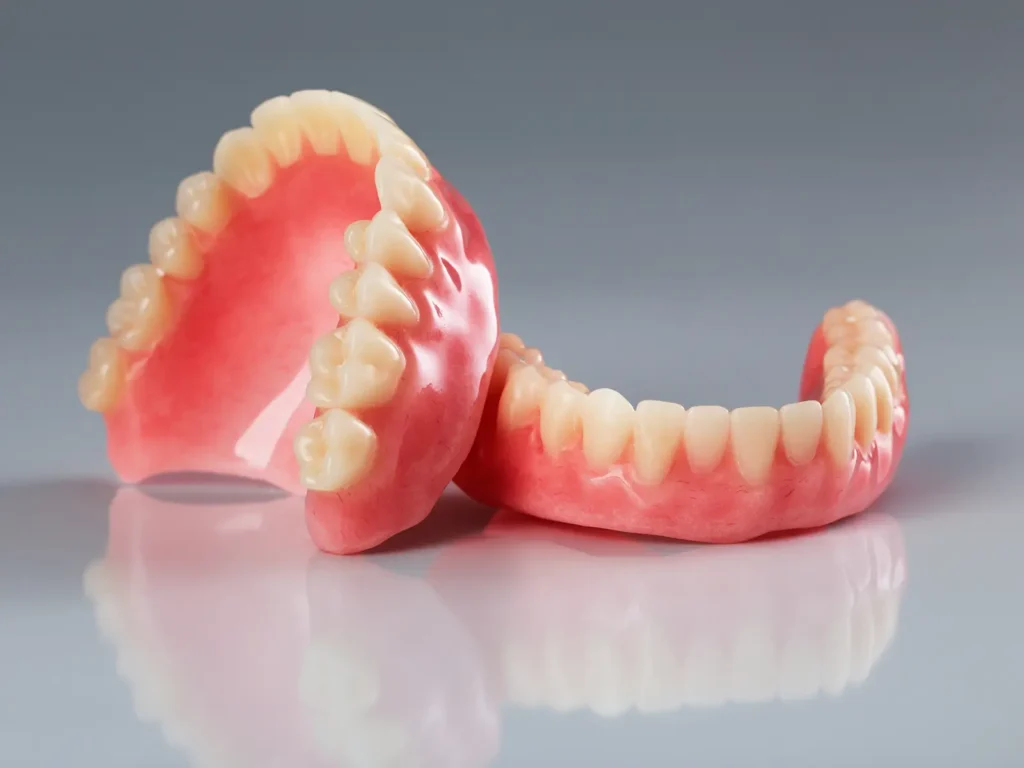Introduction:
Dentures have been a cornerstone of dental care for centuries, providing a reliable solution for those who have lost their natural teeth due to various reasons such as age, decay, or injury. These removable dental appliances offer not only functional benefits but also play a crucial role in restoring confidence and enhancing the overall quality of life for individuals with missing teeth.
I. Understanding Dentures:
Types of Dentures:
- Complete Dentures: Complete dentures are used when all natural teeth are missing in either the upper or lower jaw. They consist of a full set of artificial teeth attached to a gum-colored base. These are custom-made to fit each individual’s mouth.
- Partial Dentures: Partial dentures are designed for individuals who have some natural teeth remaining. They consist of replacement teeth attached to a metal or plastic framework, which is connected to the remaining natural teeth.
The Denture Fitting Process:
- Initial Consultation: The denture fitting process begins with a thorough examination of the patient’s oral health. Impressions and measurements are taken to create custom-fit dentures.
- Trial Fitting: A trial fitting allows the dentist to make adjustments to ensure the dentures fit comfortably and securely. This step is crucial for optimal functionality and aesthetics.
- Final Fitting: Once adjustments are made, the final dentures are fabricated and fitted. Patients are educated on proper care and maintenance to ensure the longevity of their dentures.

Benefits of Dentures:
A. Restored Functionality: Dentures enable individuals to regain the ability to chew and speak properly, improving overall oral function and facilitating a more balanced diet.
B. Enhanced Aesthetics: Beyond functionality, dentures contribute to a more natural appearance, restoring a full and youthful smile. Advances in dental technology have allowed for more realistic and personalized denture designs.
C. Boosted Confidence: Missing teeth can significantly impact self-esteem. Dentures provide a solution that restores confidence, allowing individuals to engage in social activities without hesitation.
Care and Maintenance:
A. Daily Cleaning: Dentures should be cleaned daily using a soft brush and mild cleanser to remove food particles and prevent bacterial buildup.
B. Regular Check-ups: Periodic dental check-ups are essential to ensure proper denture fit, address any adjustments, and monitor oral health.
C. Handling and Storage: Dentures should be handled with care to avoid damage. When not in use, they should be stored in a denture-cleaning solution to prevent drying out.
Common Challenges and Solutions:
A. Initial Discomfort: Some individuals may experience initial discomfort or difficulty adapting to dentures. Patience and follow-up appointments with the dentist can address these concerns.
B. Speech Adjustments: Speech may be affected initially, but with practice, most individuals adapt and regain normal speech patterns.
C. Maintenance and Repairs: Dentures may require occasional adjustments or repairs. Patients should promptly consult their dentist for any issues to ensure continued functionality.
Conclusion:
Dentures have stood the test of time as a reliable and effective solution for individuals with missing teeth. From restoring functionality to enhancing aesthetics, dentures play a crucial role in improving the overall quality of life for those facing tooth loss. With proper care, regular check-ups, and a positive mindset, individuals can confidently embrace the benefits of dentures and enjoy a fulfilling, active lifestyle.

